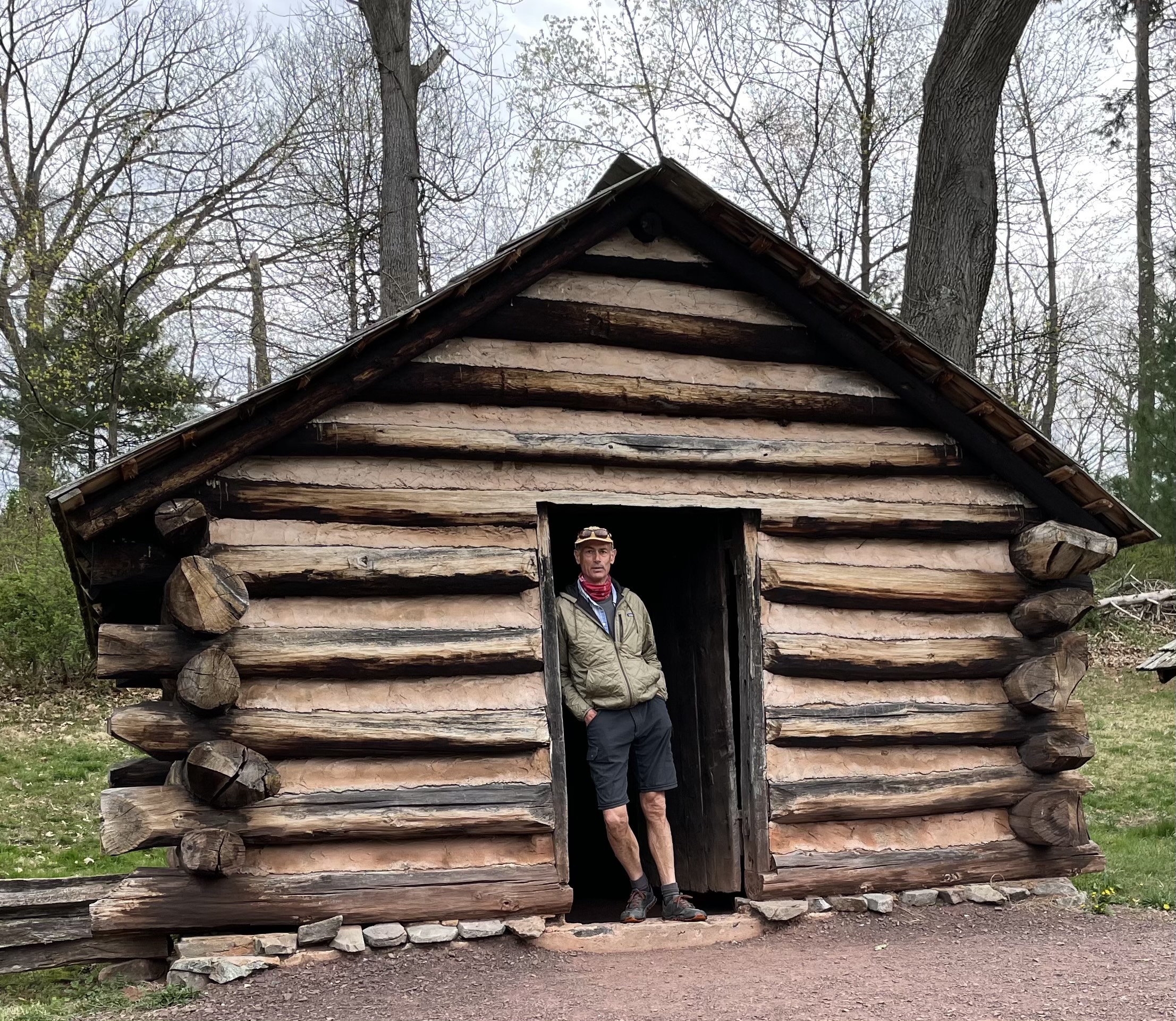
By Michele Willens
After he returned from a rather momentous journey, writer Neil King Jr. reflected on his beginnings. “I have a long history with the Upper West Side,” he said, “having graduated from Columbia and worked as a cab driver during my years there as a student. I lived one year in the ground-floor maid’s quarters of a building on 84th and Central Park West, and later in several apartments on Broadway.”
I met King, a former reporter for the Wall Street Journal, at his current apartment near Columbia, (where his wife, Shailagh Murray, works) to discuss his new book, American Ramble. And to learn more about the decision, when his cancer was in remission, to take a 330-mile walk from our nation’s capitol to New York City. Among other notable ‘blurbers,’ Ken Burns calls it a “near perfect book.’ I have to agree.
King opens the book with his motivation. “My aim now was to be as footloose at 61 as many of us are at 20, but minus the angst of figuring out who I was to become,” he writes. “I can’t squander what time I have on pettiness, unless it is the pettiness of forests and the tedium of rivers and streams. I beat back the recurrence—a flare-up in my lymph nodes and yet another fall of chemo and radiation—and then tiptoed into a meadow broad.”
His journey–free of earbuds, audibles, or podcasts–took him to historical places we know of, such as Gettysburg and Valley Forge. (Yes, he crossed the Delaware.) But also to places whose names may be familiar—such as the Mason Dixon Line—but King gives us the stories and people behind them.
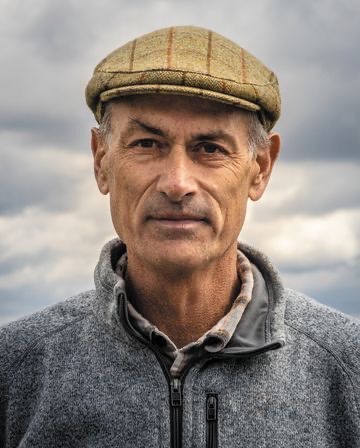
We join him as he passes into Mennonite and Amish territory, where he considers the true meaning of non-conformity. He follows in the footsteps of foreign visitors who loudly extolled a prison in Philadelphia called Eastern State. (“More than Valley Forge or Independence Hall or the steamboats on the Hudson, this prison is what sets America apart,” wrote Charles Dickens.) There are history, and life, lessons enroute: King considers the country’s over-reliance on consumerism as he visits a New Jersey landfill.
A devout political liberal, he listens more than talks to those he meets on his journey. At every stop, he introduces us to regular folk who helped him along his way. “As I went, day after day,” he writes, “opening myself to the places and people I encountered, I became in time more open to those places and people.” And yet, he also endorses the beauty of being alone. “The most durable form of belonging starts, oddly, with solitude.” This man can write.
I walked—okay, a half mile–to meet King in his Upper West Side apartment. I asked him to reflect on the journey.
Regrets? “I never got into the Susquehanna River, and I love cold water plunging.”
What did he most learn from the trek? “It led me to understand how the parable of the Good Samaritan and so many others, are about someone walking somewhere. These one-off encounters, while on some sort of pilgrimage, help you to become so much more open. You’re not in your car, your environment is you, and you are counting on others and on their decency. I’d read many travelogues of the curious Europeans, such as De Toqueville and Dickens. They wondered what was this brand-new country? It made me ask, can I see this place as if I’ve never seen it?”
How important are the history lessons throughout? “I wanted to keep that as swift and digestible as possible. But it drove home to me the fickleness of when we decide to memorialize something, and how quickly events can be washed away. What is it that we remember and what and why is it that we’ve forgotten?”
Who does he think will read this book? “I hope readers will go from 20-year olds trying to figure out a course in life, to people in their 60s and 70s who may wonder if they can just walk out their door and do something entirely different. I don’t know if it will lead to some great surge in rambling, but there is a profoundly different world out there that is so accessible but that most of us never really see.”
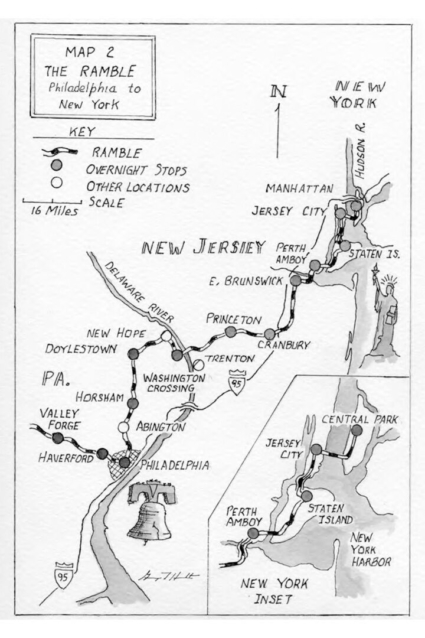
And how has the experience made Neil King different than before he walked out that door? “It altered my time horizon and gave me a much higher sense of urgency. It wedged open a part of my spirit.”
As for still feeling like one of us? “There’s been an interesting circularity in all this, returning 40 years later to a neighborhood where I lived as a very different person in my early 20s. That history also gave my long walk the feel of a homecoming. My destination was Central Park, but afterwards my wife and I wandered up to this apartment. When I tossed my pack on the couch, my ramble was officially over.”
Michele Willens is the author of From Mouseketeers to Menopause. She covers theater in her weekly radio report “stage right or not.”



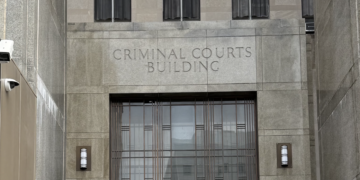
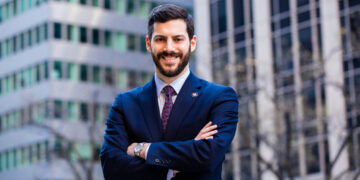




I once walked from Alaska to Montana.
Good one 😉 Santos / Devolder and this author (Neil King) embody opposite approaches to asking what this country represents and how to represent it.
Hmm… would you by any chance happen to either be, or be related to, that famous American liar George Devolder? Or is that Anthony Devolder…?
Or is it also George Santos, allegedly a Congressman but more importantly a fugitive from justice from Brazil and also (as if that’s not enough) a salesperson engaged in selling dreams with that noted Ponzi scheme (Harbor City Capital, wherein nobody seems to’ve kept any of their Capital)??
Were you also… a champion volleyball player in one of our finer Colleges?
Of course I could go on but shan’t.
What a wonderful review. I can’t wait to ramble to my local bookstore and dig deeply into this book. Willens makes it sound adventurous and poetic. Hopefully I’ll run in to Neil King or Michele Willens on the Upper West Side.
That was fun, but I would’ve enjoy reading more about the nuts and bolts of Neil’s trip, because, for example, I once walked for about a month in Nepal, during which I had a backpack containing a tent, pounds of rice, lentils, tea, sugar… so I’d walk all day up and across mountains and before sundown, gather water from a stream, put up my tent , wood for a fire, etc… or sometimes I’d make a deal with Nepalis and pay them, so I could open my sleep bag on their floor. When I hitchhiked across the Nullarbor Plain in Australia on the other hand, I’d be in 18 wheelers during that journey for the most part & stay in hotels when I could; that’s what I meant by the nuts and bolts of the journey; I’ve no idea HOW Neil did what he did, except there was walking involved.
On the other hand it was fun to recall, remember & reflect upon my own traveling days, so long ago & far away, which is something I seldom do.
I wish the very best of health to Neil King, Jr.
Lawrence, thanks for the question. I kept it very light–no tent, no sleeping bag, just 16 pounds or so in a small pack, and slept in Airbnb basement and garage units mainly, plus a few inns and motels. I decided for endurance and comfort I wouldn’t sleep outside. And it’s funny, because I too hitchhiked all the way across Australia, from north of Sydney across the Nullarbor to Perth, and in that case I slept outside the whole way. But that was 40 years earlier.
Thanks for responding! I was so naïve, and lucky, in retrospect, in Australia (and everywhere else for that matter) in the sense that in my trek across the Nullarbor (west to east: starting off in Perth to Melbourne, then north to the ACT & Sydney) I only had to sleep outside once, in my sleeping bag, under an 18 wheeler… it was only later that I learned the names of so many of the truly poisonous creatures that could’ve crawled or slithered into that bag with me… but I was 26 at that time and had just finished 2 years working out of construction camps and on the high seas in oil rigs & crayfish boats in that “back of beyond” & so was hot for freedom & adventure again.
Yeah comfort; I’ve wised up too… I remember sleeping in a cave once in Afghanistan, back when it was a kingdom… never again.
Thank you for publishing this wonderful review. I can’t wait to read the book!
Clearly, now, I need to read this book. Inspiring!